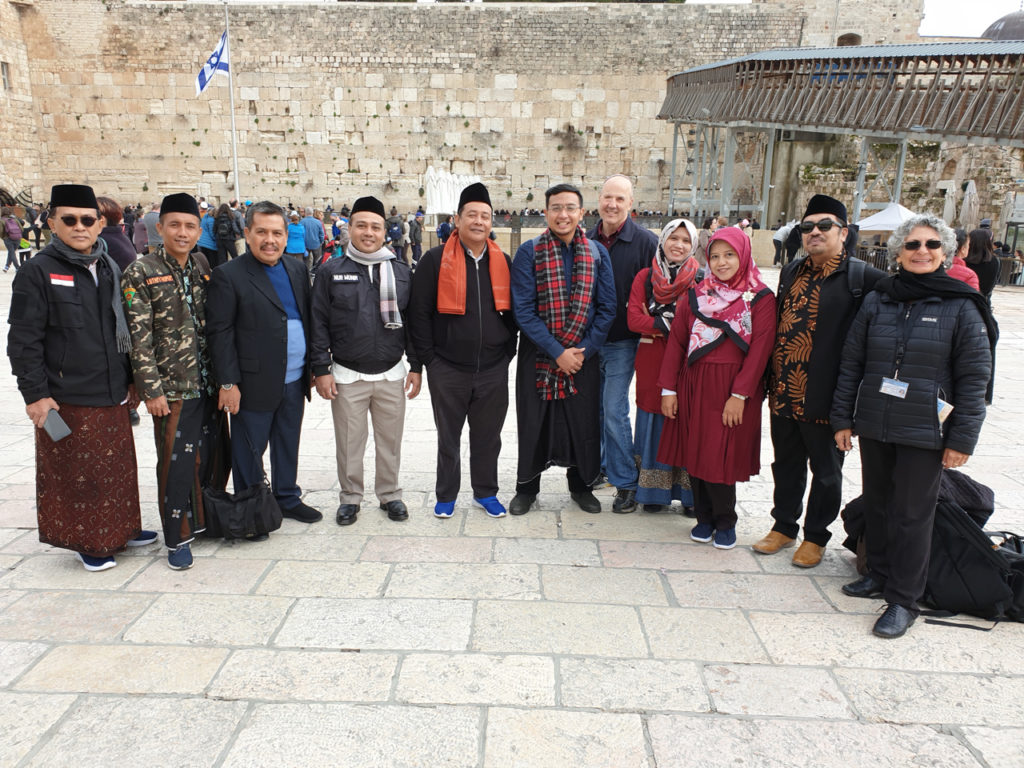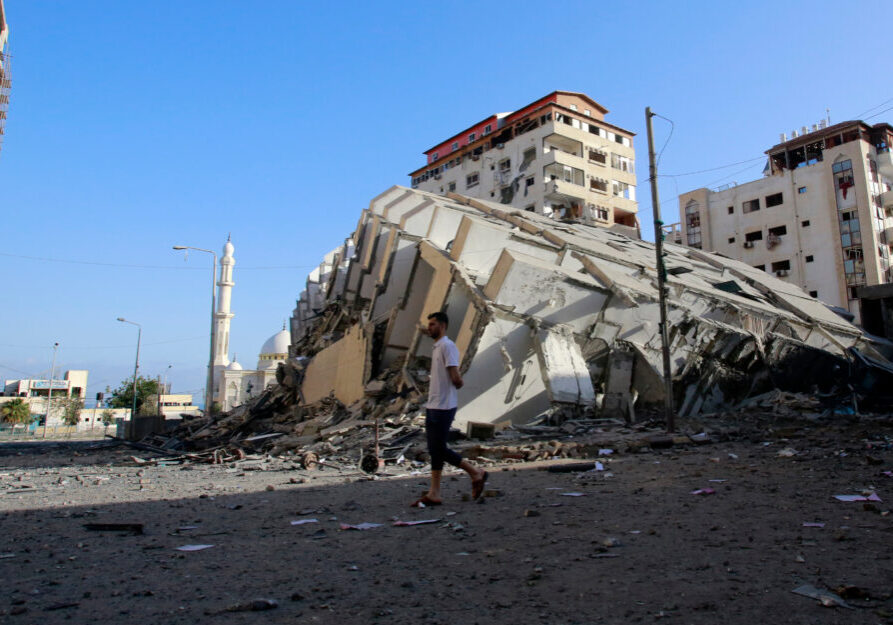Australia/Israel Review
An Israeli scholar “goes” to Indonesia
Feb 2, 2021 | Giora Eliraz

More than once, I have been invited to speak at academic forums in Indonesia. However, in the absence of diplomatic relations between Indonesia and Israel, this proved too complicated to realise.
While there is some trade activity by Israeli businesspeople in Indonesia, academic activity there by Israelis can best be described as non-existent, and the idea of giving lectures from a podium in an Indonesian university seemed fantastic. It became even more far-fetched if the potential talk’s topic relates to politics and, as such, might be potentially sensitive. Therefore, as far as I could see, any such scenario remained purely hypothetical.
And yet the coronavirus era offered me an opportunity to make “real” such a hypothetical situation. In the wake of two articles I published, one in Singapore and the other in Australia, on the delayed and carefully-phrased response by Indonesia to the peace agreements between Israel and both the United Arab Emirates (UAE) and Bahrain, I was invited to speak “in Indonesia”. This time, I actually “arrived”.
In October, I addressed a webinar initiated by the Students Association of the Department of International Relations (KOMAHI) at the Universitas Islam Indonesia (UII) in Yogyakarta. This city is located in the central part of Java and is known in Indonesia as a centre for higher education. The UII has deep roots in the national history of the Indonesian state.
The webinar topic was: “Normalisation of relations between Arab Countries and Israel: Political interests & the status of Palestine.” I was invited to be the first speaker and to join both the webinar’s moderator, Dr. Muhammad Zulfikar Rahmat, and the second speaker, Mohamad Rezky Utama. It is apparent from the UII’s website that the normalisation of relations between Israel and the UAE has stirred a particular interest among the students of the Department.
An Israeli scholar speaking at an Indonesian academic forum on the normalisation of relations between Israel and Arab countries, including its implications for the Palestinian issue, is potentially a highly charged topic, for two reasons. As of now, Indonesia strictly adheres to a policy that establishing diplomatic relations with Israel cannot occur until a peace agreement is reached between Israel and the Palestinians that includes the creation of an independent Palestinian state. Second, and more importantly, the Palestinian cause strikes powerful emotional chords in Indonesia, on two different levels.
Indonesia’s high level of commitment to the Palestinian cause is strongly tied to the nation’s long-standing national commitments to decolonisation and anti-colonialist sentiments, traceable back to both the War of Independence against the Dutch (1945-1949) and Indonesia’s role in the creation of the Non-Aligned Movement in the 1950s. The second chord is an Islamic one. The majority Muslim population in Indonesia feels considerable solidarity with the ummah, the global Muslim community. As such, the Palestinian struggle is also largely perceived as a struggle which engages all Muslims.
In the actual webinar, referring to a background paper and questions prepared by the students beforehand, I opened by saying that describing the move by the two Arab Gulf countries as a violation of the Arab League consensus on Palestine might be missing the big picture. It is an independent move by two successful countries reflecting rapid change in the region and the global system. Normalisation is expected to serve the economic welfare of the entire region, and the two Gulf states have not retreated from their commitment to the Palestinian cause and a two-state solution.
The main part of my talk addressed Israel-Indonesia relations, a question that has been triggered by normalising relations between Arab countries and Israel. I presented a series of arguments to suggest Indonesia may want to revisit its traditional stance on this matter. Among them:
• Indonesia often signals an interest in being involved in Middle Eastern affairs, including in conflict resolution efforts and the peace process for the Israeli-Palestinian conflict. This interest is closely connected with its concern about the spread of religious extremism from the Middle East. Obviously, the absence of diplomatic relations with Israel makes such a function much less viable;
• Indonesia, as home to the world’s largest Muslim Sunni population and as a polity that is strongly inspired by values of religious moderation, tolerance, progress and development, has much in common with countries such as the UAE and Bahrain;
• Indonesia’s vision of rapid economic growth also depends on substantial economic cooperation with the Gulf countries. The planned projects associated with normalising relations with Israel attest that broader, more ambitious economic cooperation can be carried out in the context of full diplomatic relations, including direct involvement by governments. By definition, the great potential of economic cooperation between Indonesia and Israel cannot achieve full momentum without diplomatic relations;
• Indonesia’s fundamental guiding foreign policy principle of bebas dan aktif (“independence and activism”) seems to also imply creativity, flexibility and adaptation to changing circumstances. This is exactly the implicit spirit of the normalisation initiative by the two Arab Gulf states;
• The legacy of Indonesia’s first democratically elected president, the late Abdurrahman Wahid, includes a call to establish diplomatic relations with Israel and an encouragement of intensive dialogue and understanding between Muslims and Jews.
This last point led interestingly into the presentation by the second speaker, Mohamad Rezky Utama. Last February, he visited Israel as a member of group of Indonesian Islamic leaders and educators conducted under the auspices of the Australia/Israel & Jewish Affairs Council’s Rambam Program. It was described as a trip “In the Footsteps of Gus Dur”, intended to honour the memory of president and religious leader, Abdurrahman Wahid, widely known as Gus Dur (1940-2009), who sought to improve Jewish-Muslim understanding globally.
I was privileged to have had the opportunity to personally meet Wahid, and my meeting with this great man has been a source of inspiration for me throughout my career.
It was clearly evident through Mohamad’s talk that his intensive visit to Israel, and to the Palestinian Authority territories as well, had a great impact on him. It was an eye-opening experience that appears to have given him and his colleagues a new perspective about the rights and equality enjoyed by the Arab population in Israel, as well as about the geostrategic position of Israel and the risks it faces.
Beginning with a historical review encompassing hundreds of years, Mohamad delivered a message to the young students participating that the Jews have deep historical roots in the land of Israel. He also noted that Muslims and Jews lived together in peace and harmony for hundreds of years. He mentioned in this context the great medieval Jewish philosopher Maimonides, using the Hebrew acronym Rambam.
At the same time, it could be implicitly understood that Mohamad firmly shares the Indonesian consensus about the need to find a peaceful solution to the Israeli-Palestinian conflict that secures the rights of the Palestinians to their own state. Smilingly, he rebuked both sides of the conflict for dragging their feet for decades, explaining that it is really hard for Indonesians to understand why the Israelis and the Palestinians have failed to agree on a solution. He added that “if it was our case”, a solution that would enable all to live together in peace would definitely have been reached years ago. Mohamad’s claim is not groundless; Indonesia has amassed a positive track record of resolving complicated local conflicts peacefully, including inter-religious and inter-sectarian conflicts.
And finally, the students appeared to fully appreciate this unique event. Their representative body, KOMAHI, even expressed hope that I would participate in their next webinar, and awarded me a Certificate of Recognition for speaking to them.
For me this unique opportunity to talk to young Indonesian scholars offered me yet more proof that societies of the Middle East, including Israel, can benefit a great deal from real people-to-people diplomacy with Indonesia. The Middle East needs the energy and perspectives of young Indonesian scholars and students, who strongly adhere to values such as tolerance, democracy, interfaith dialogue, peaceful conflict resolution, gender equality and progress.






